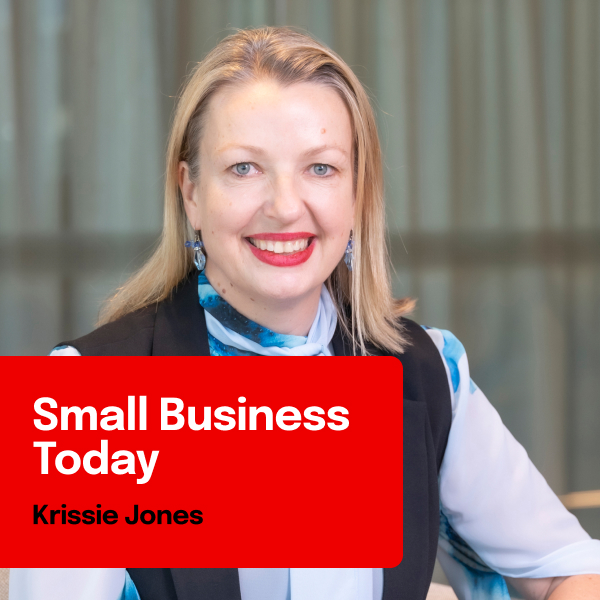28 August 2025
April 10, 2025
Krissie Jones : Capital connections: How to best secure business financing
Looking for capital to grow your small business? NAB Executive of Business Direct and Small Business Krissie Jones shares the steps you need to take to have the best chance of funding success.
By Krissie Jones
I regularly come across small businesses that are finding it difficult to access capital.
Sometimes they’re overwhelmed by all the hoops they have to jump through. Or, if they’ve only just started on their business journey, they may not have the information they need to get a loan application over the line. After all, how do you estimate your cash flow if it’s almost non-existent?
Then there’s the cost of capital – something that’s become even more pressing with higher interest rates.
It’s no wonder so many small businesses view funding as a roadblock. In fact, NAB research found that almost twice the proportion of small businesses see access to capital as a barrier to innovation compared to large businesses – 30% versus 16%., opens in new window
Yet it doesn’t have to be this way.
NAB data, opens in new window also shows that small business loans are on the rise compared to their larger counterparts. And, certainly, there are steps you can take as a small business owner to overcome funding challenges.
First, find an expert
A great starting point is to seek support.
When it comes to business loans, financial institutions want a robust business plan – one that has a lot of detail, including comprehensive forecasts and projections.
Advice from an accountant or financial adviser with experience in your business sector can be invaluable here. They can provide the specific insights you need, such as benchmarking or the proportion of your expenses you should set aside for wages. These kinds of details are critical to building a solid business plan, even if you don’t yet have the documentation to support it.
At the same time, an accountant can help you keep your books up to date, ensuring they accurately represent the financial health of your business. Again, that’s a critical step in having your application approved.
A business mentor can also smooth the way. I’ve met numerous customers who have found them to be a great sounding board, able to clarify your thinking and help avoid any pitfalls as you embrace new opportunities.
Ask how your experience stacks up
It’s not just the numbers that have to add up though; relevant industry experience also counts for a lot.
Take, say, a couple looking to open a plant nursery. Our bankers will want to know if they’ve worked in horticulture, or have a background in retail, or have ever run a business.
Essentially, they want to feel confident the couple understand how to run a business and have the networks and connections to develop successful supply chains.
Recently, I was in the small town of Birregurra in regional Victoria, visiting two women who had opened an amazing providore. While their first couple of months were great, business has slowed substantially with the end of the school holidays.
But this shouldn’t stop them accessing the finance they want to buy their business property. Why? Because they’ve run a business before and have the know-how and connections to draw on when things get tight. For instance, they’ve already provided bus companies operating tours of Birri and the surrounding area with a flyer and snapshot of their business so that, even in the quieter months, tour groups are likely to consider stopping off at the store for coffee, lunch or providore gifts.
Be rates aware
Of course, accessing a loan is just the first step. There’s also the cost of capital.
It’s another reason to ensure you have a robust business plan that can flex with any challenges. You don’t want to get caught out by changing rates or a drop in trading conditions.
This has been made even clearer in the current challenging environment. NAB research shows cash flow and working capital are the primary reasons small and medium-sized businesses are seeking additional capital – the proportion nearly doubling in 12 months, opens in new window.
It’s why the Reserve Bank’s recent cut in the cash rate is particularly welcome – as is talk of further reductions over the next 12 months. How you choose to spend that additional money, however, requires careful consideration. Ask yourself: is it better to make higher repayments or use your lower loan repayments to free up your cash flow? Again, it’s an issue you may wish to discuss with your accountant or financial adviser.
Understand your options
It also pays to remember that there are other ways of accessing capital, including government grants and financial programs that may suit your business.
I’ve spoken to several customers who have done a great job of accessing these, carrying out a thorough search to find what’s on offer for their particular sector.
Ultimately, it’s a matter of knowing you’re not alone. Backing and support are there for the taking.


